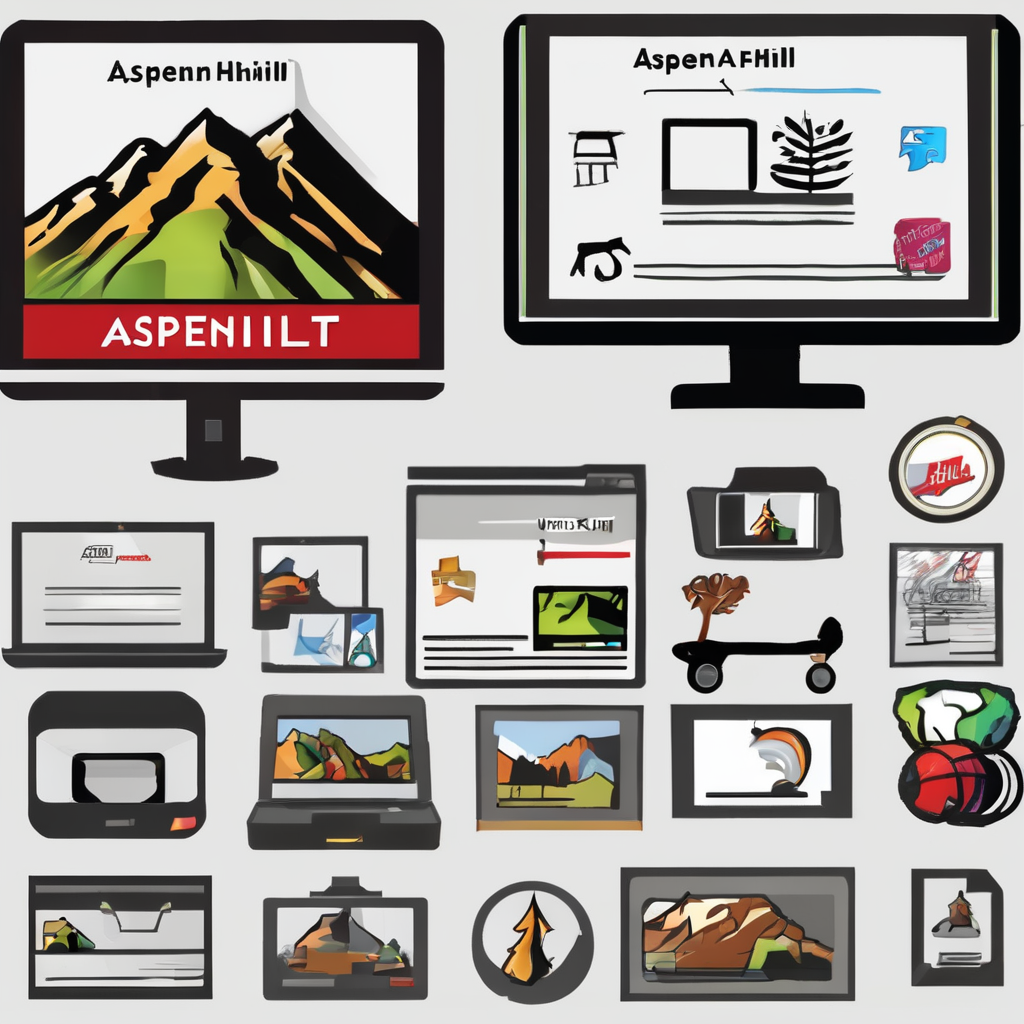Key Areas for UK-Europe Tech Collaboration
Collaboration in UK-Europe tech partnerships thrives notably across three major sectors: artificial intelligence (AI), fintech, and green technology. These sectors showcase extensive opportunities for innovation and market growth. In AI, joint research projects drive advancements in machine learning algorithms, benefiting from shared expertise and data sets between UK and European teams. Fintech collaboration focuses on creating seamless financial services and innovative payment solutions, while green tech partnerships address climate challenges through sustainable innovations.
Research collaboration between British and European universities also plays a pivotal role. These institutions often engage in joint R&D projects, fostering knowledge exchange and accelerated technological development. Such partnerships enhance academic contributions to the startup ecosystems on both sides, bringing fresh talent and novel ideas into the mix.
In the same genre : What role does UK technology play in advancing artificial intelligence?
Startups benefit from dynamic startup ecosystems supported by cross-border accelerators. These programs facilitate funding, mentorship, and market access, enabling companies to scale efficiently. Together, these concerted efforts establish a robust environment for sustained UK-Europe technology collaboration, maximizing innovation and competitive advantage.
Key Areas for UK-Europe Tech Collaboration
Exploring UK-Europe tech partnerships reveals vibrant connections, especially in AI, fintech, and green tech sectors. These fields anchor collaboration, driving innovation and addressing key challenges such as sustainable energy and financial technology advancements.
In parallel : Embrace the Digital Shift: How Is Technology Transforming Traditional Workspaces?
In addition, research collaboration between UK and European universities fuels breakthroughs. Joint academic projects and shared R&D facilities enhance knowledge exchange and accelerate new technologies. For example, partnerships frequently form around AI ethics, fintech security, and green technology applications, strengthening cross-border innovation.
The startup ecosystems across these regions also thrive on close ties. Startup accelerators foster cross-border ventures, offering networking and growth opportunities for emerging tech companies. They help scale ideas from concept to market by providing mentorship, funding access, and connections with industry leaders.
Together, these areas create a dynamic environment for collaboration. The combination of academia, industry, and vibrant startup hubs enables a holistic approach to tech development, benefiting both UK and Europe through shared expertise and resources. This synergy is essential for tackling technological challenges and fostering competitive advantage globally.
Recent Developments and Regulatory Environment
The Brexit impact on tech has reshaped the UK-Europe tech partnerships, introducing new regulatory dynamics. Post-Brexit, the UK is no longer part of certain EU digital frameworks, which affects data sharing and compliance. However, the UK actively participates in select European digital and innovation programs, maintaining vital links. For example, cooperation continues through innovation frameworks designed to support joint research and development, particularly in AI and fintech sectors.
Tech regulation Europe is evolving to harmonise standards for digital products and services across borders. This harmonisation is crucial as it ensures smoother market access and consistent compliance rules. UK regulatory bodies are aligning where possible with EU counterparts to facilitate collaboration despite political changes.
Digital policy developments emphasize data protection, cybersecurity, and digital competition rules that influence UK-Europe tech ventures. Understanding these frameworks is essential for startups, researchers, and companies engaged in cross-border collaboration, ensuring innovation thrives amid regulatory shifts.
Key Areas for UK-Europe Tech Collaboration
UK-Europe tech partnerships are thriving primarily in AI, fintech, and green technology, sectors that benefit greatly from joint expertise and market integration. These areas present fertile ground for innovation, combining strengths from both regions to tackle complex challenges, from developing advanced algorithms to achieving sustainability goals.
Research collaboration forms the backbone of these partnerships. Universities across the UK and Europe engage in joint R&D initiatives, pooling resources and academic talent. This shared effort accelerates technological breakthroughs in AI ethics, fintech security, and eco-friendly tech solutions. Such collaboration helps create a continuous pipeline of knowledge and innovation.
The vibrancy of startup ecosystems further fuels these partnerships. Cross-border accelerators and incubators provide startups with crucial resources—funding, mentorship, and networking opportunities—that support scaling across markets. By linking emerging ventures with established industry players, these ecosystems foster resilient, growth-oriented collaborations. Together, these key areas create an interconnected tech landscape, maximizing mutual benefits and driving sustained progress.
Key Areas for UK-Europe Tech Collaboration
UK-Europe tech partnerships focus intensely on AI, fintech, and green technology sectors as primary drivers of innovation. In AI, teams from both regions engage in research collaboration that advances machine learning techniques, with data sharing enhancing algorithm development. Fintech partnerships leverage shared expertise to innovate payment solutions and regulatory compliance. Green technology efforts centre on sustainable solutions combating climate challenges through joint R&D.
Academic collaborations play a crucial role in strengthening these partnerships. UK and European universities often co-develop projects, combining resources and knowledge to accelerate tech breakthroughs. This synergy enriches university-led innovation and fosters a pipeline of skilled talent fueling startups.
Startup ecosystems benefit significantly from cross-border accelerators that provide mentorship, investment opportunities, and access to wider markets. These accelerators help startups navigate regulatory complexities and scale their ventures, ensuring that innovative ideas reach a broader audience efficiently. Together, these elements form a foundation for a thriving UK-Europe tech innovation landscape.
Key Areas for UK-Europe Tech Collaboration
UK-Europe tech partnerships focus strongly on three main sectors: artificial intelligence (AI), fintech, and green technology. These sectors are key drivers for growth, innovation, and tackling global challenges. In AI, research collaboration between UK and European universities enhances machine learning and ethical frameworks, harnessing diverse expertise and shared data. Fintech partnerships innovate in payment systems and regulatory compliance, benefiting from cross-border knowledge exchange. Green technology collaboration addresses sustainability goals through joint development of eco-friendly solutions.
Beyond sector-specific work, academic institutions provide a robust foundation for these partnerships through joint R&D projects. These collaborations pool resources and talent, accelerating breakthroughs that feed into the startup ecosystem. Startup ecosystems thrive on cross-border accelerators, which offer mentoring, investment access, and market entry support, helping emerging tech firms scale efficiently between the UK and Europe.
Together, these interconnected efforts create a powerhouse of innovation, enabling sustained growth and competitive advantage across the region’s technology landscape.
Key Areas for UK-Europe Tech Collaboration
UK-Europe tech partnerships are especially vibrant in AI, fintech, and green technology, where complementary strengths drive groundbreaking progress. AI collaboration leverages joint expertise in machine learning models and ethical frameworks, enabling teams to develop smarter, more responsible applications across borders. Fintech benefits from aligned regulatory sandboxes and innovative payment platforms that enhance cross-border financial services. Green technology partnerships focus on sustainable solutions, combining research into renewable energy and environmental impact reduction.
Central to these sectors is powerful research collaboration between UK and European universities. Academic institutions share resources, knowledge, and talent through joint R&D projects, accelerating advances in AI algorithms, secure fintech infrastructure, and eco-friendly technologies. This research ecosystem is a vital pipeline that nurtures innovation and ensures scientific rigor.
Startup ecosystems play a crucial role by bridging innovation to market. Cross-border accelerators provide startups with mentorship, funding access, and industry connections, which are essential for scaling emerging technologies internationally. These ecosystems bolster collaboration by fostering networks that cut across geographies, enhancing knowledge transfer and commercial success. Together, these elements form a robust framework that sustains UK-Europe tech cooperation.
Key Areas for UK-Europe Tech Collaboration
UK-Europe tech partnerships focus strongly on intertwining strengths across artificial intelligence, fintech, and green technology sectors. These fields serve as catalysts for innovation, benefiting from extensive research collaboration where UK and European universities pool expertise and resources. This synergy accelerates breakthroughs in AI ethics, secure fintech solutions, and sustainable green innovations, nurturing a robust foundation for technology advancement.
Academic and R&D partnerships form the backbone of this cooperation. Universities collaborate on joint projects, share data sets, and co-develop new frameworks, amplifying innovation capacity. These efforts foster a continuous knowledge exchange that supports emerging technologies and bridges academic findings with industry needs.
Integral to this landscape are the startup ecosystems empowered by cross-border accelerators and incubators. These platforms provide essential mentorship, funding access, and networking opportunities, enabling startups to navigate complex markets and regulations. By connecting nascent ventures with experienced stakeholders, these ecosystems nurture scalable businesses contributing to the vitality of UK-Europe tech partnerships.
Together, these elements create a vibrant and resilient environment where research, innovation, and market growth interlace productively.
Key Areas for UK-Europe Tech Collaboration
UK-Europe tech partnerships focus predominantly on artificial intelligence (AI), fintech, and green technology as pivotal sectors driving innovation and growth. These sectors benefit deeply from strong research collaboration that harnesses complementary strengths across both regions. UK and European universities routinely engage in joint R&D projects, pooling expertise to push advancements in AI algorithms, secure fintech solutions, and sustainable technologies. This collaboration facilitates timely knowledge exchange and the development of ethical frameworks, which are critical in sectors like AI and fintech.
Meanwhile, startup ecosystems serve as vital hubs linking innovation to market opportunities. Cross-border accelerators actively support UK-Europe tech ventures by providing funding access, mentorship, and networking, enabling startups to scale effectively across multiple markets. These ecosystems also help navigate regulatory complexities, making it easier for emerging companies to capitalize on joint research outcomes.
Collectively, these partnerships create a dynamic framework where academic research, innovation, and entrepreneurship intersect. This synergy strengthens the region’s technology landscape, fostering continued progress in key areas like AI, fintech, and green technology through sustained collaboration and shared resources.


